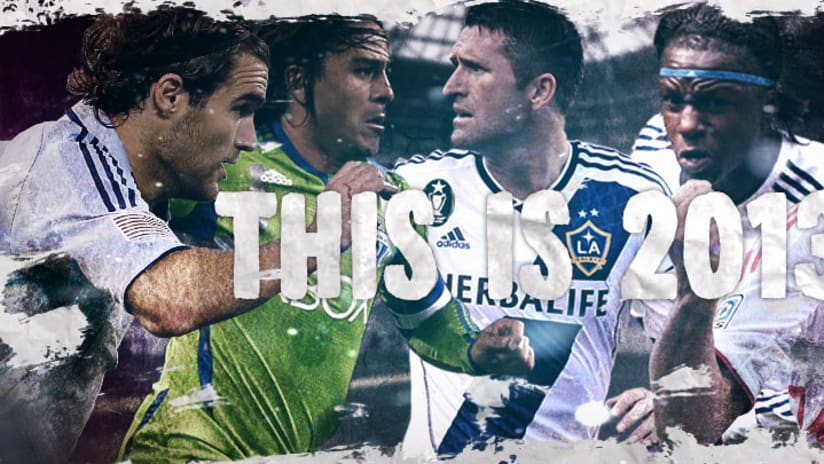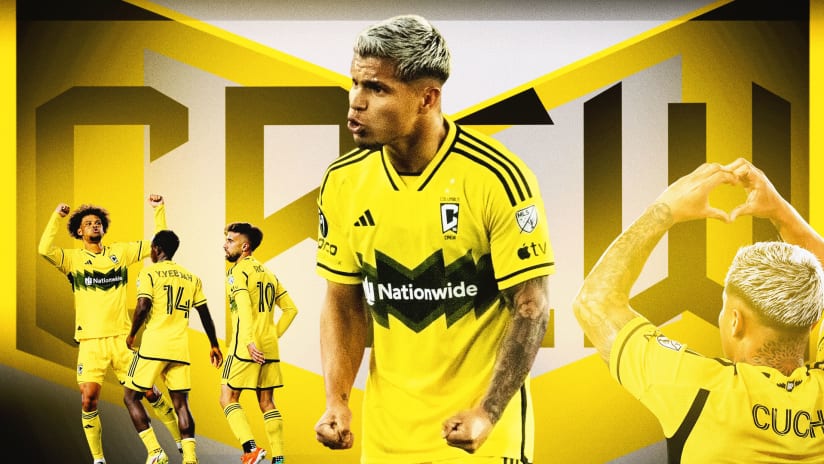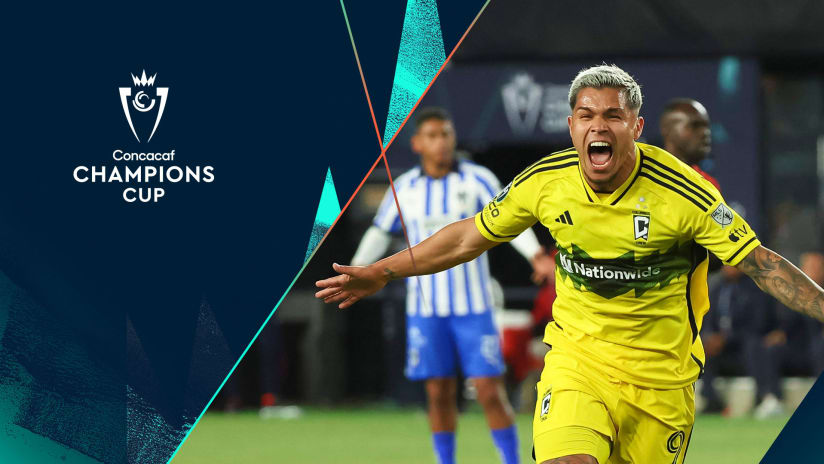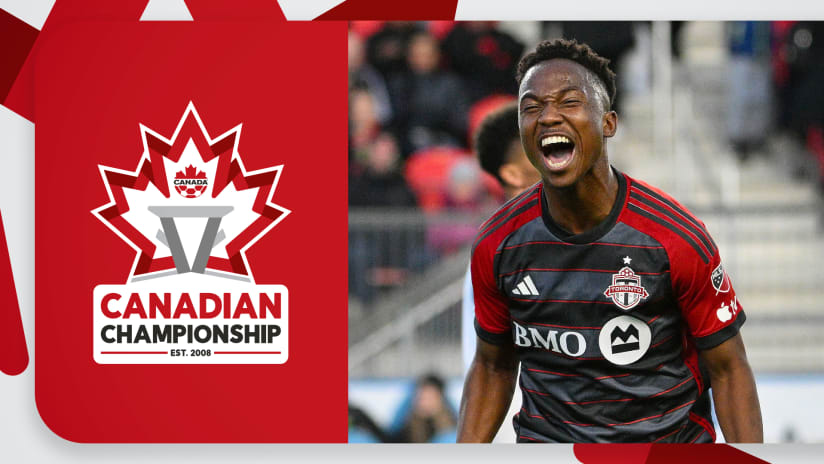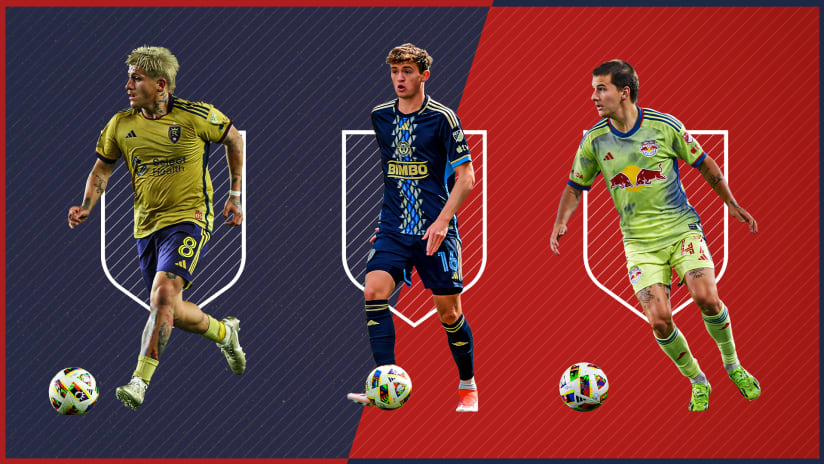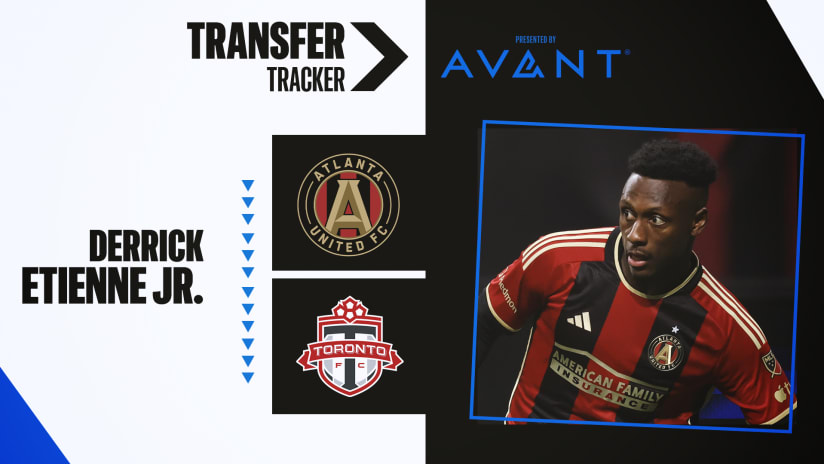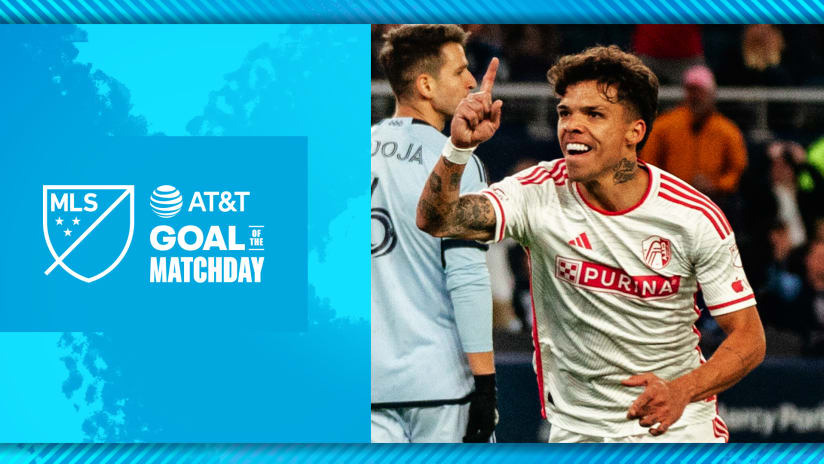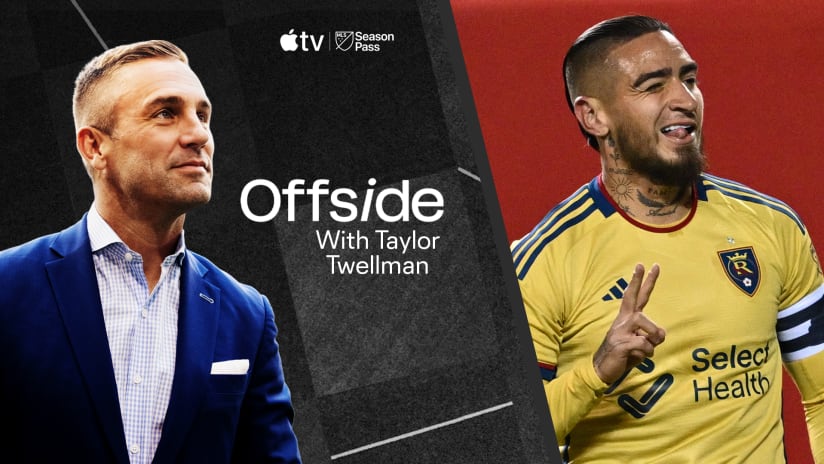NEW YORK – Over the years, I've written this kind of MLS season-kickoff essay often. Part preview, part pep rally, each one expressed a sense of pride in the state of the league, the progress of the game, and the development of a cool, uniquely North American soccer culture.
More often than not, these thoughts came under immediate fire. Seemingly from all directions. Longtime American soccer observers accused me of being naive. Europhiles questioned if I had ever seen a game at Highbury or San Siro or the Camp Nou. Latin American aficionados sent me YouTube clips of Boca Juniors-River Plate or Club America-Chivas and suggested I watch them before I ever dare write again. And one guy insisted I was a "moron" because I continued to use "the American word (soccer) instead of the real English word: FOOTBALL." Yes, he used all caps.
The reaction, as enlightening as it was from a journalistic perspective, jabbed at the fan in me. It made me feel as if all my fellow soccer fans in the United States and Canada actually disliked their own league, our league, the only viable top-flight league many of us had ever known. Or even had the chance to know.
My initial counter-reaction was to get defensive. I didn't understand why we all weren't trying to help this young league we'd all craved for so long. Why weren't we together? Why did they feel the need to diminish something that they should care deeply about: the development of the game and the establishment of a league of our own that can stand next to any other league in the world?
Today, when I look back on those essays, I have to agree with the critics. I was naive. I was half-blinded by hopefulness for a league I've been involved with – as a player, a fan, and a journalist – since its inception in 1996.
But not anymore. My eyes are wide open. And as MLS enters its 18th season – opening weekend is March 2-3 – hopefulness has given way to reality. And the reality is: MLS, our league, has become one of the strongest soccer leagues in the world.
Now, before you scoff at that with some snarky tweet or some comment about how I have no idea how good Manchester United and Barcelona and Juventus and Paris Saint-Germain are, let me explain.
To me, the quality of a modern league goes beyond the transfer value of its top 20 players and the record of its top two or three clubs. And so I have no problem saying the following:
- MLS is the most competitive major league in the world. In its 17 seasons, MLS has had nine different clubs win the championship. That's the same number of title-winners Spain has seen since La Liga was established in 1929, and four more than the Premier League has seen since its founding in 1992.
- MLS is stable and growing. The many financial difficulties seen in European and South American leagues are well documented, from Portsmouth and Rangers to Valencia and plucky little Real Oviedo. Meanwhile, the value of MLS clubs has continued to rise; the total number of clubs in the league has nearly doubled since 2005; and most MLS clubs now play in their own soccer-specific stadium. Plus, MLS now boasts the seventh-highest average attendance in the world, among soccer leagues.
- The quality of play MLS is vastly underrated. There's a reason foreign scouts keep a keen eye on MLS: They know the level of play is better than people think. Beyond the obvious Henrys and Keanes and Nestas, there is world-class talent in such players as Graham Zusi, Boniek Garcia, Dwayne De Rosario, Kyle Beckerman, and Mauro Rosales, not to mention newcomers like Diego Valeri, Daigo Kobayashi, and Diego Calderon. And that doesn’t take into account recent exports like Geoff Cameron, Roger Espinoza, Brek Shea, Kei Kamara, and Andy Najar, who didn’t miss a beat when they moved abroad.
- MLS will develop the long-sought "American Messi" soon. No, the academy system is not perfect. It's not turning out world-class geniuses like the Barcelona or Ajax academy do. But give it time. It's still in its infancy. Plus, MLS's Homegrown initiative hasn't done too badly, bringing up the likes of D.C.'s Bill Hamid and Andy Najar, Toronto's Ashtone Morgan, New England's Diego Fagundez, and Philadelphia's Zach Pfeffer.
- The world is embracing MLS's innovations. Many critics have complained about MLS's decidedly un-European playoff structure and lack of a single table. But the truth is, the European leagues are embracing playoffs. Sometime after MLS's inception, nearly every top European league has instituted a playoff of some kind, from the promotion playoffs in England, Germany, the Netherlands, Turkey, etc., to the Greek playoff system for their second Champions League spot. Then there is the debate over the so-called international schedule. Well, a few weeks ago, Bayern Munich President Karl-Heinz Rummenigge suggested that Europe would do well to consider a spring-to-fall schedule, rather than the traditional fall-to-spring one.
- North America has a true supporter culture. Go to a match in Seattle or Portland or Salt Lake or Kansas City or Montreal or Philadelphia, and you'll join in a soccer experience every bit as vibrant as matches around the world. A growing legion of supporters who chant, raise their scarves, and create tifo is embracing a bold, creative, accepting, and uniquely North American soccer culturalism. It's not only about supporting our clubs and our players (full disclosure: I'm a Chivas USA fan), but also about supporting the soccer community, as a whole. This can be seen in the nearly universal congratulations extended to Robbie Rogers after he announced he is gay (with nearly universal disappointment at his decision to step away from the game) or by helping the community's many cultural endeavors: Rise & Shine: The Jay DeMerit Story, Howler Magazine,XI Quarterly, and Branden Steineckert's anthem "Believe RSL," to name a few.
Now all of this is not to say that MLS is perfect. Far from it. But from what I can tell, no one knows this more than the people in the MLS front office.
But all of that is irrelevant. Because ultimately, soccer is about love, as cheesy as that sounds. You either love your club or you don’t. Sure, you may rail against this or that on Twitter, and you may give “constructive criticism” when you’re in the stands. That’s part of being a supporter. That's part of your love. But it goes even further. Being a soccer supporter today is a mindset, reminiscent of the alternative rock and hip-hop communities of the late '80s, that says you care about something that is rarely on the front pages, and that you're okay with that.
Because this is 2013. This is the year that we US and Canadian soccer supporters accept who we are and what we love, proudly. No more half-blind hopefulness. No more defensiveness. Just soccer.

